Retro Replay Review
Gameplay
The core of M*A*S*H’s gameplay lies in its two distinct mission types, each demanding a different set of skills and reflexes. In the first stage, you pilot a helicopter over a hostile battlefield, dodging enemy fire and tanks to rescue injured soldiers. The tension builds as the chopper’s health bar ticks down with each hit, turning each rescue into a nerve-wracking dash back to base. Precision flying is key—you must balance speed with caution, since a single miscalculation can send your mission spiraling.
(HEY YOU!! We hope you enjoy! We try not to run ads. So basically, this is a very expensive hobby running this site. Please consider joining us for updates, forums, and more. Network w/ us to make some cash or friends while retro gaming, and you can win some free retro games for posting. Okay, carry on 👍)
Once back at the base, the game shifts gears to a surgical challenge reminiscent of the classic “Operation” board game. Here you slip into the scrubs of Hawkeye Pierce and carefully remove bullets and shrapnel from wounded GIs. You navigate tiny tweezers over pixelated organs, avoiding contact with the vessel walls. A wrong move costs precious seconds and damages your patient’s condition, testing both your hand-eye coordination and patience.
Each complete set of airlift and surgical missions is repeated four times before concluding a full game, with the first player to reach 999 points declared the winner. Variations on mission speed, enemy density, and surgical difficulty can be selected at the start, allowing players to tailor the challenge. Whether tackling these rounds solo against the computer or competing head-to-head with a friend, the rapidly escalating intensity keeps you engaged from start to finish.
Graphics
M*A*S*H’s visuals capture the essence of early 1980s home computer gaming, with simple but functional pixel art and a limited color palette. The battlefield view offers a top-down perspective, showcasing blocky tank sprites and tiny wounded soldiers waiting for extraction. While not cutting-edge by today’s standards, the graphics convey enough detail to keep you aware of enemy positions and landing zones.
During the surgery phase, the graphics shift to a side-on cross-section of the patient’s torso. Internal organs are represented by colored shapes and lines, creating a clear but abstract surgical field. The tiny animated heartbeat monitor and flashing warning lights add urgency to the tense removal of shrapnel, proving that even minimalistic visuals can generate suspense when paired with responsive controls and sound cues.
Transitions between flying and operating room sequences are swift, maintaining the game’s pacing without unnecessary loading screens. The user interface is straightforward—your score, remaining lives, and mission timer are always visible, ensuring you’re never in the dark. Although M*A*S*H won’t dazzle modern eyes, its graphics are serviceable and, more importantly, serve the gameplay well.
Story
Based loosely on the beloved M*A*S*H television series and film, the game places you in the shoes of Hawkeye Pierce, chief surgeon at the 4077th Mobile Army Surgical Hospital during the Korean War. While the in-game narrative is minimal, the familiar setting and character identity lend it instant charm. Between missions, you’re reminded of the stakes through brief text prompts that echo the show’s blend of gravity and gallows humor.
Rather than focusing on a linear plot, M*A*S*H uses its two-stage structure to evoke the rhythms of military life: brave frontline rescues followed by intense medical procedures. This duality captures the show’s balance of battlefield action and OP room drama, giving players a taste of both worlds without relying on extensive cutscenes or dialogue. The repetition of missions reinforces the idea of every day being a similar but no less critical struggle.
Though the game doesn’t delve into character relationships or comedic subplots, it effectively leverages franchise familiarity. Players who loved Hawkeye’s irreverent wit and the unit’s camaraderie will appreciate the nods to the series, even if they’re only hinted at in status updates and victory messages. The result is a compact, action-driven experience that feels like a respectable homage rather than a simple cash-in.
Overall Experience
M*A*S*H offers a unique two-pronged gameplay formula that remains engaging despite its age. The adrenaline rush of helicopter rescues transitions seamlessly into the white-knuckle precision of virtual surgery. This variety keeps the game from becoming monotonous, and the escalating difficulty curve ensures that the challenge grows alongside your skills.
For fans of retro gaming or M*A*S*H enthusiasts, the title delivers a nostalgic trip back to the early days of licensed video games. Its straightforward controls and clear objectives make it accessible to newcomers, while players seeking a greater challenge can adjust mission settings or compete against another player. Although the graphics and sound are dated, these limitations do little to dampen the core fun factor.
Ultimately, M*A*S*H stands as a solid example of early licensed adaptations—lean, focused, and surprisingly durable. It may not offer the narrative depth of modern war or medical simulators, but it captures the spirit of its source material through inventive gameplay and a dose of vintage charm. If you’re looking for a compact action-surgery hybrid with a dose of TV nostalgia, M*A*S*H is worth a spin.
 Retro Replay Retro Replay gaming reviews, news, emulation, geek stuff and more!
Retro Replay Retro Replay gaming reviews, news, emulation, geek stuff and more!
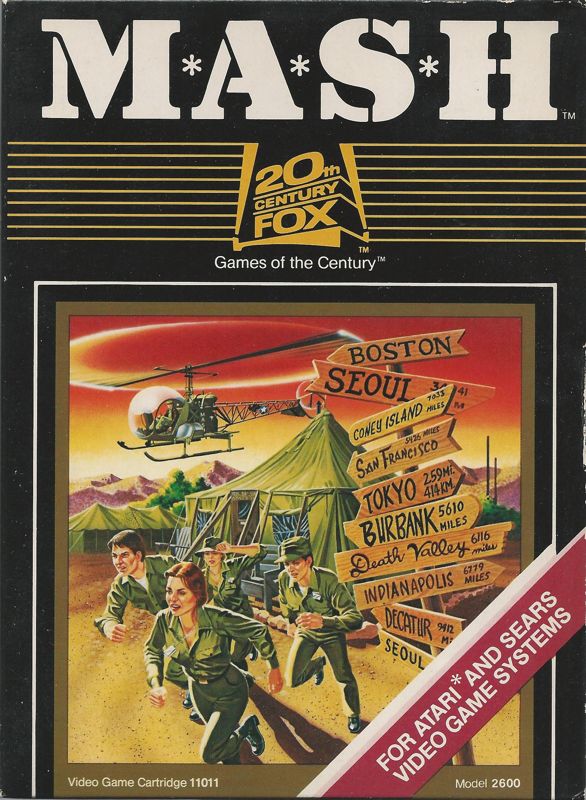
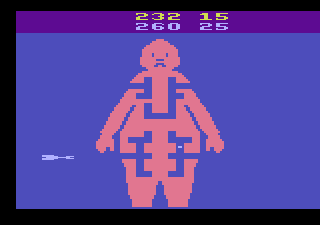
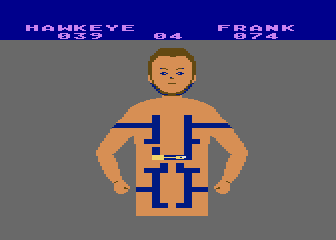
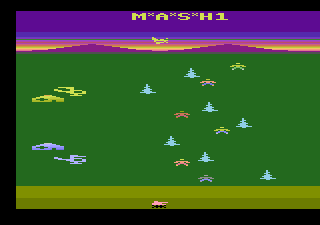
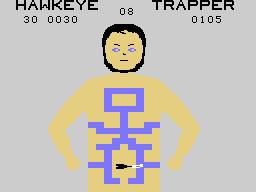
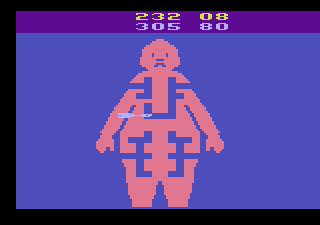



Reviews
There are no reviews yet.